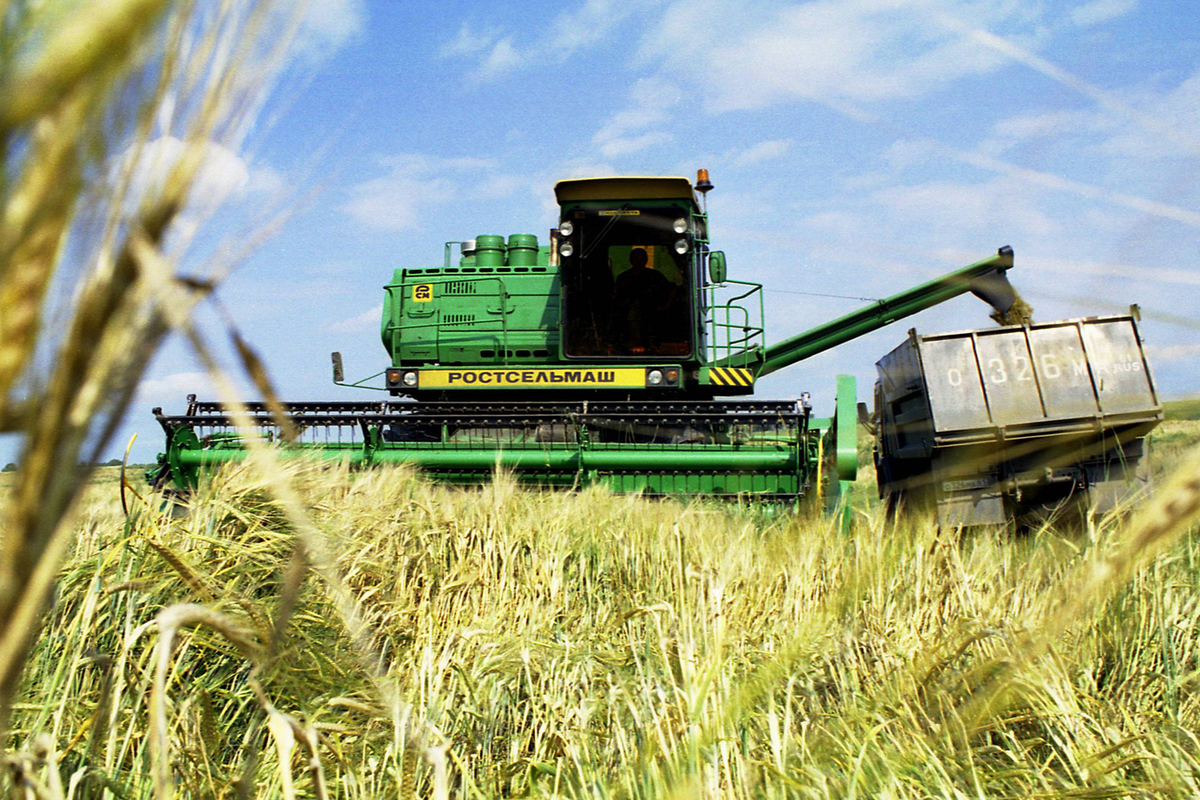The European Union will introduce prohibitive duties on grain from Russia: the consequences are named
[ad_1]

The European Commission has proposed introducing “prohibitively high” customs tariffs on grain from Russia and Belarus, which is tantamount to a ban on their import. Until now, Russian grain has not been subject to European sanctions, but it seems that in the near future the situation will change and “entry” into Europe for our wheat and other grain crops will be closed. MK found out from experts what the consequences of such a decision would be for the domestic and global grain markets.
“The European Commission has proposed an actual ban on the supply of grain, sunflower seeds and fodder crops from Russia and Belarus to the EU internal market by setting tariffs so high that this makes their import into the EU economically unprofitable,” Deputy Head of the European Commission Valdis Dombrovskis said at the end of last week. briefing in Brussels. As stated in the EC press release, raising tariffs will prevent destabilization of the EU market and prevent Russia from using revenues from grain exports to the EU in the conflict in Ukraine. “Since Russia exported approximately €1.3 billion worth of such products to the EU in 2023, these EU duties will deprive the Russian economy of another important source of profit,” the document says.
At the same time, it states that the duties will not affect grain supplies to third countries. The proposal will now be considered by the EU Council.
Details of the new European blow to Russian exports were recently reported by the Financial Times, which named the specific amount of the duty on grain from Russia and Belarus, discussed by the EU authorities, as 95 euros per ton. According to the publication, the method invented by the European authorities will allow the European Commission to raise prices for these products by at least 50 percent. In addition, duties of 50 percent will be introduced on oilseeds and their processed products.
By making the decision to introduce grain duties, Brussels is not only once again demonstrating its political anti-Russian position, but is also simultaneously solving an internal problem – with its farmers. The fact is that this decision is being made against the backdrop of protests in EU countries demanding the return of customs duties on imports of agricultural products from Ukraine, the abolition of which, as farmers from Poland, Hungary and Slovakia say, has reduced their revenue.
It should be taken into account that in 2023, imports of Russian grain into the EU countries amounted to 4 million tons, or only 1% of grain consumption in Europe. Indeed, according to the Russian Grain Union, in 2024 Egypt became the main buyer of Russian wheat, with Turkey in second place. Next is Libya, exports to which market have increased almost 3 times. Also, shipments to Saudi Arabia increased by 2.2 times, and to Bangladesh by almost 3 times.
The situation on the global grain market is also curious. According to the Russian Grain Union (RGU), French wheat is currently offered at $215 per ton, American wheat at $229 per ton, and Russian wheat at $210-211 per ton.
How will EU restrictions affect the Russian and global grain markets?
According to the General Director of the Institute for Agricultural Market Studies (IKAR) Dmitry Rylko, EU countries do not play a big role in Russian grain exports, since they account for only 1% of the total volume of foreign supplies of domestic grain.
Independent grain market expert Alexander Korbut, in turn, recalled that in Europe there have always been restrictions on the import of soft wheat in the form of quotas. Therefore, in his opinion, if restrictions are introduced, the Russian Federation will find other markets for its grain and oilseeds, “although, of course, this will be additional stress.”
Meanwhile, grain exports from the Russian Federation in the 2023/2024 agricultural year (July-June) may increase to 65 million tons. In the previous agricultural year, the Russian Federation exported 60 million tons of grain.
A professor at the Russian University of Cooperation, as well as an active farmer, Dmitry Valigursky, recalled in a conversation with MK that grain exports from the Russian Federation from January to June 2023 amounted to 46 million tons, exports from the European Union – 34 million, Canada – 24 million, Australia – 20 million, USA – 19 million, Argentina – 12 million. That is, Russia is the main supplier of grain to the foreign market. And the prohibitive duties on the part of the European Union, of course, are aimed at reducing our competitiveness in the European and world markets.
“Today we sell almost $40 billion worth of food abroad. And the lion’s share of exports is wheat. This is our strategic product. There should be representative offices abroad that regulate, manage, monitor and look for an additional market for our grain,” says MK’s interlocutor.
[ad_2]
Source link






